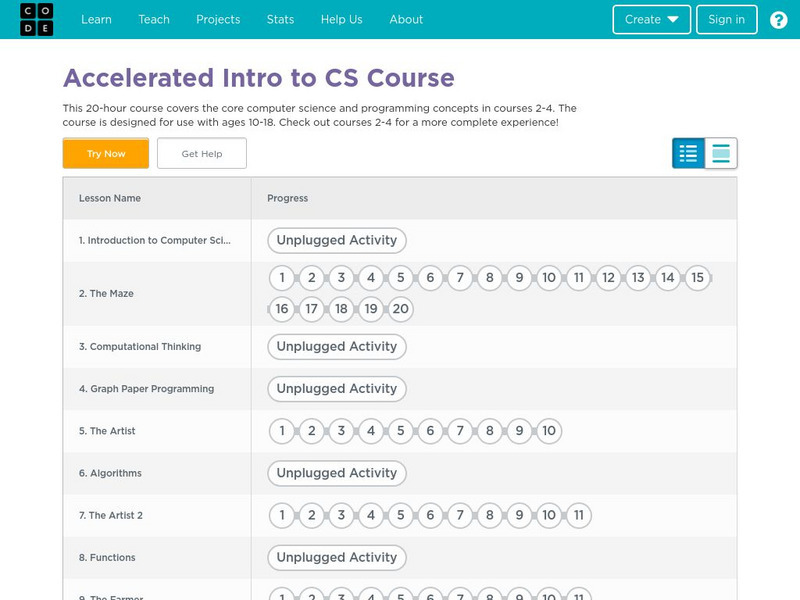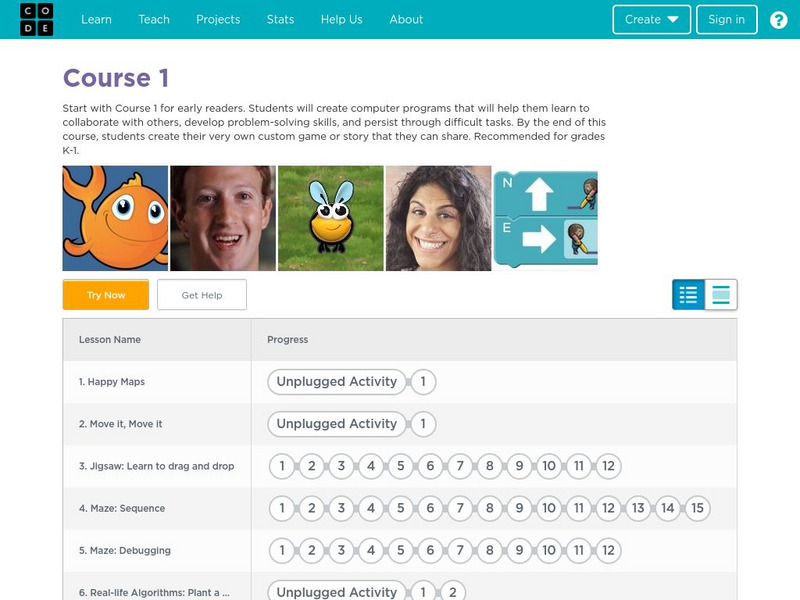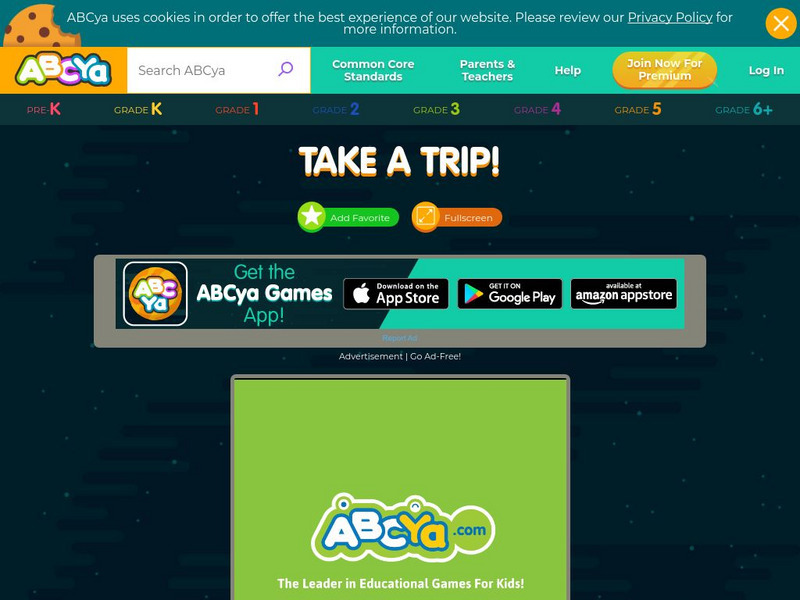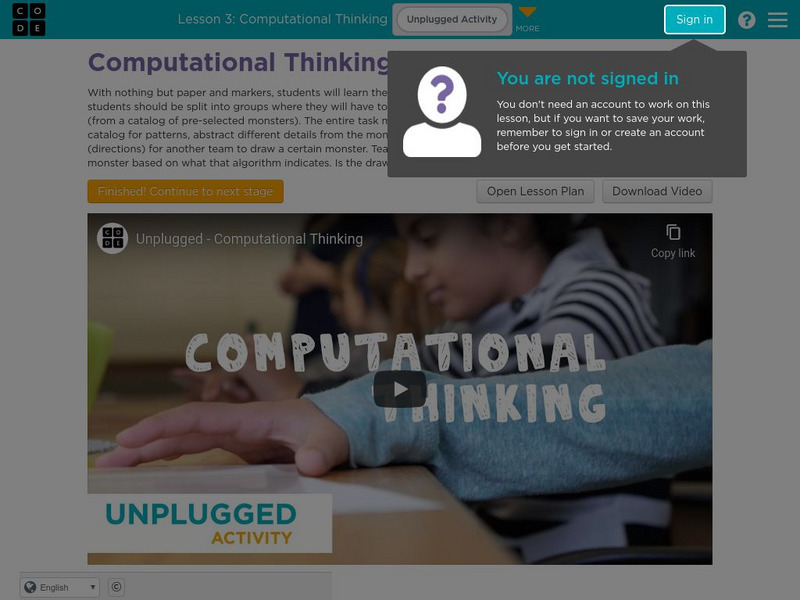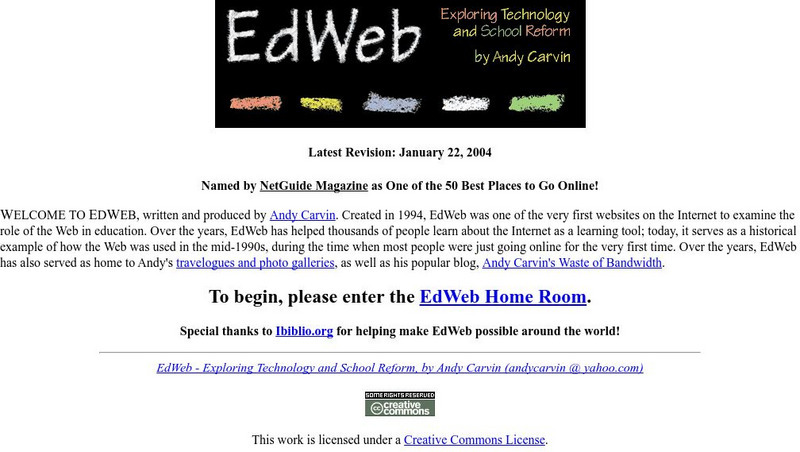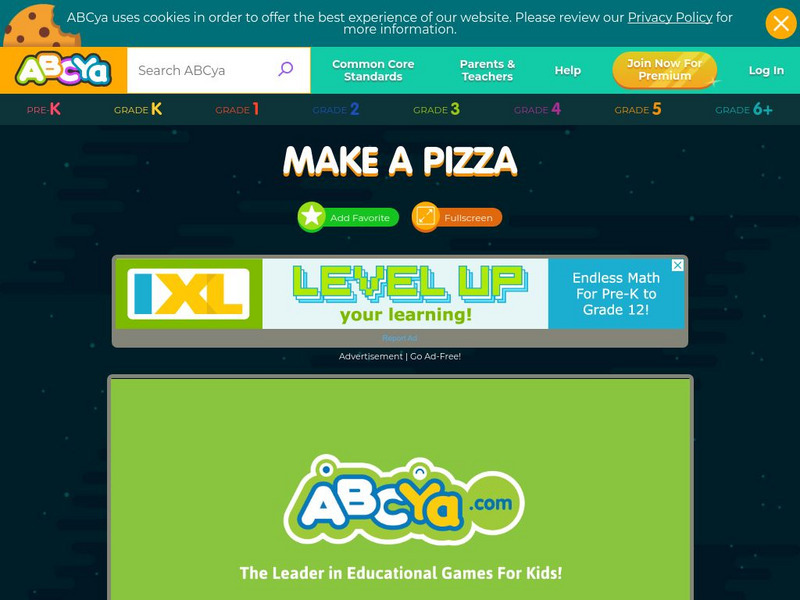Hi, what do you want to do?
Unite for Literacy
Unite for Literacy: Technology: Teach Your Computer
This book introduces the concept of computer programming to young students. Includes audio narration in six additional languages with text in English.
Code.org
Code Studio: Computer Science: 20 Hour Intro Course
This twenty-hour course introduces elementary and middle school students core computer science and programming concepts.
Code.org
Code Studio: Computer Science: Course 1
Early readers create computer programs that will help them learn to collaborate with others, develop problem solving skills, and persist through difficult tasks. Their ultimate end task is to create a custom game or story.
ClassFlow
Class Flow: Parts of the Computer
[Free Registration/Login Required] This flipchart provides an introduction to computers at the elementary grade level.
Other
Saskatoon Public Schools: Instructional Strategies Online: Independent Study
Teach your students to become self-motivated learners with these independent study strategies including essays, computer assisted instruction, journals, learning logs, and many more. Then click on some of the strategies to learn more...
ABCya
Ab Cya: Owl Planes Typing
Owl Planes Typing is an educational multi-player racing game that allows students from anywhere in the world to race one another while practicing typing and keyboard skills!
PBS
Pbs Learning Media: Let's Learn
This collection of resources for children ages 3-8 are drawn from the public television series Let's Learn, a partnership between the WNET Group and the New York City Department of Education. Let's Learn aims to provide our young...
Other
Csta: Computational Thinking: A Digital Age Skill for Everyone [Pdf]
The National Science Foundation asked a group of thought leaders to bring the concepts of computational thinking to the K-12 classroom.
ABCya
Ab Cya: Take a Trip: A Journey Through Familiar Places
Using the computer mouse, children carefully move a car through a map of a town while trying to avoid going off of the path. They pass different landmarks and are introduced to them one at a time. The activity provides good hand-eye...
ABCya
Ab Cya: Make a Gingerbread House
Make a Gingerbread House is a holiday computer activity for early elementary age children. Kids learn and practice valuable mouse manipulation techniques while clicking and dragging. Students will also exercise visual spatial skills...
Other
Up to Ten
This multi-intelligence developmental site categorizes activities into motor skill development, intellectual agility development, and computer literacy development. Large, brightly colored icons and figures light up the screen. Follow...
ABCya
Ab Cya: Click and Drag to Make a Face
Practice basic mouse manipulation skills using this interactive lesson. Using the mouse, learners move the shapes to create a colorful and funny face. Immediate feedback given.
Other
Virginia Career View: A Book About Me 1
Use a virtual pencil to write or draw likes, talents, and skills. Then print the activity when finished.
University of Canterbury
University of Canterbury: Cs Unplugged: Primary Enrichment Program [Pdf]
This unit introduces students to some of the building blocks of how computers work without using a computer at all. The lessons keep students actively involved in communication, problem solving, creativity, and thinking skills in...
Other
Iste: Computational Thinking for All
Advances in computing have expanded our capacity to solve problems at a scale never before imagined, using strategies that have not been available to us before. This professional article introduces educators to the idea of teaching...
Other
Teaching Ideas for Primary Teachers: Computing Ideas
A great resource to discover fun new computer activities to bring to your classroom.
Other
Thirteen Productions: Space Racers: Space Collector
An interactive game dodging asteroids and collecting objects in space. Students will practice hand-eye coordinated mouse skills while flying through space.
Code.org
Code Studio: Computational Thinking
Introduce the Computational Thinking model as a way of preparing real-world problems for digital representation. With nothing but paper and markers, learners learn the four steps of computational thinking.
Other
Ed Web: Homepage
EdWeb explores educational reform and information technology. "With EdWeb, you can hunt down on-line educational resources around the world, learn about trends in education policy and information infrastructure development, examine...
Other
Ed Web: Homepage
EdWeb explores educational reform and information technology. "With EdWeb, you can hunt down on-line educational resources around the world, learn about trends in education policy and information infrastructure development, examine...
PBS
Pbs Learning Media: Arthur: Collection
This collection foster students' interest in reading and writing, and encourage positive social skills with this collection of classroom resources from ARTHUR. Aimed at children between the ages of four and eight, these resources feature...
Alabama Learning Exchange
Alex: How to Set the Table Correctly
The Family and Consumer Science (FACS) portion of this lesson provides opportunities for students to utilize acceptable guidelines for table setting. A basic computer research component familiarizes students with fundamental processes of...
ABCya
Ab Cya: Keyboarding Zoo
Keyboarding Zoo is a fun and educational activity to help early elementary age students learn the keyboard. Children are encouraged to use their index or pointer fingers to match letters on the screen to their keyboards.
ABCya
Ab Cya: Make a Pizza
Kids click and drag the different toppings to make a pizza! Students learn and practice valuable mouse manipulation techniques while clicking and dragging. Fun for children of all ages.
Other popular searches
- Teaching Computer Basics
- Basic Computer Skills
- Computer Basics Excel
- Kindergarten Computer Skills
- Computer Literacy Excel
- Computer Basics for Adults
- School Computer Use
- Teaching Computer Skills
- Adult Computer Literacy
- Computer Skills Powerpoint
- Computer Literacy Word
- Computer Literacy Grade 9






